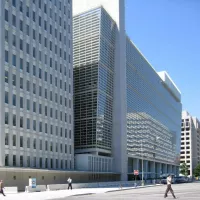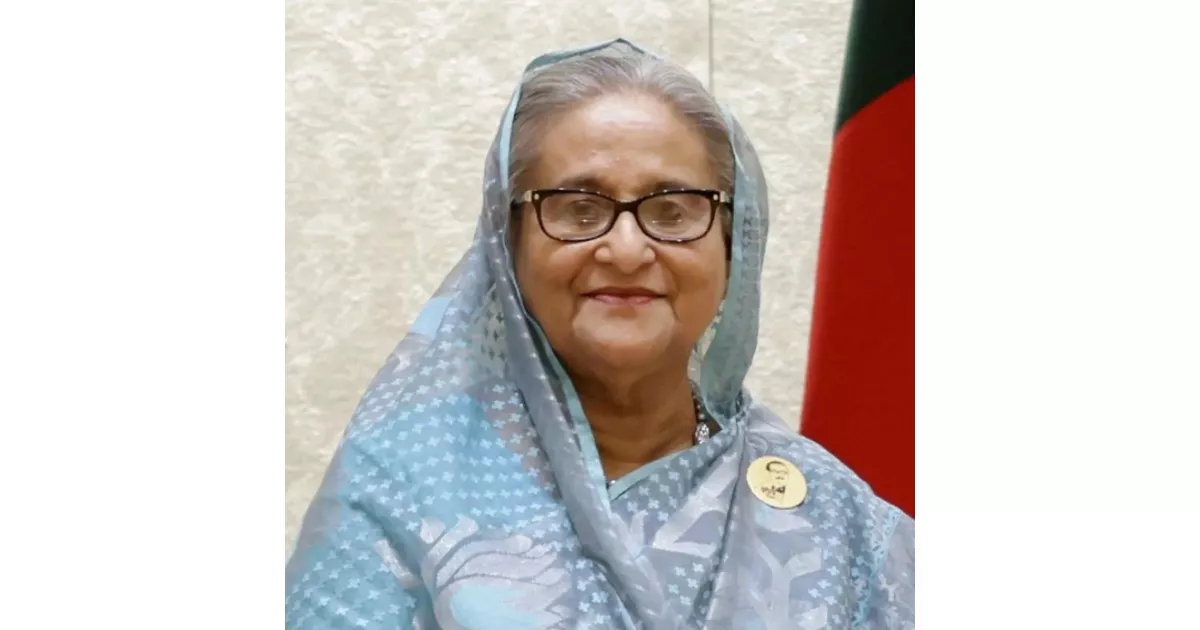Controversies are a part of history. Explore the biggest scandals linked to Sheikh Hasina.
Sheikh Hasina Wazed is a Bangladeshi politician who served as the tenth prime minister of Bangladesh from 1996 to 2001 and from 2009 to 2024. Accumulating over 20 years in office, she holds the record for the longest-serving prime minister of Bangladesh since its independence and the longest-serving female head of government globally. Her tenure as prime minister was characterized by dictatorship, oligarchy, and crimes against humanity. She resigned and was exiled to India following the July Revolution in 2024.
May 2004: Assassination of MP Ahsanullah Master
In May 2004, MP Ahsanullah Master was shot and killed, contributing to increased political unrest and violence during Hasina's second term as leader of the opposition.
October 2006: Protests and Strikes after Khaleda Zia's government end
In October 2006, following the end of Khaleda Zia's government, there were protests and strikes, during which 40 people were killed over uncertainty about who would head the Caretaker Government.
October 2006: Logi Boitha Movement
On 28 October 2006, Sheikh Hasina and Awami League convened a rally in Dhaka opposing BNP government moves to have Khondokar Mahmud Hasan appointed as chief advisor. This rally, known as the Logi Boitha Movement, led to casualties, vandalism, looting, and soaring commodity prices.
2006: Detention on Extortion Charges
During the 2006–2008 political crisis, Hasina was detained on extortion charges.
January 2007: Cancellation of Ershad's nomination and withdrawal of Grand Alliance candidates
In January 2007, during the interim period leading to the planned 22 January 2007 parliamentary elections, Ershad's nomination was cancelled due to a corruption conviction. As a result, the Grand Alliance withdrew its candidates en masse and demanded the publication of a voters' roll.
January 2007: Political unrest before planned elections
In January 2007, the months preceding the planned 22 January 2007 elections were filled with political unrest and controversy.
April 2007: Graft and extortion charges
In April 2007, Hasina was charged with graft and extortion by the military-backed caretaker government, accused of forcing businessman Tajul Islam Farooq to pay bribes in 1998 for approving a power plant project.
April 2007: Murder charges filed
On 11 April 2007, police filed murder charges against Hasina, alleging she masterminded the killing of four rival party supporters in October 2006, during clashes between the AL and rival party activists. Hasina was visiting the United States at the time.
April 2007: Government ban and arrest warrant
On 18 April 2007, the government barred Hasina from returning to Bangladesh, claiming she made provocative statements. On 22 April 2007, an arrest warrant was issued against her for murder. The arrest warrant was suspended, and the ban was dropped later in the month.
May 2007: Filing of chargesheet against Awami League leaders
In May 2007, police filed chargesheet against 19 leaders and activists of the Awami League for vandalising, setting fire to and looting an office, though they were later acquitted in court.
July 2007: Arrest on Extortion Charges
On 16 July 2007, Hasina was arrested at her home and taken before a local court in Dhaka on extortion charges, and denied bail. On 17 July 2007, the Anti-Corruption Commission requested details of her assets. Her arrest was seen as politically motivated.
September 2007: Filing of Additional Corruption Case
On 2 September 2007, the Anti-Corruption Commission filed an additional case against Hasina regarding the awarding of a power plant construction contract in 1997, alleging she took a bribe. A graft case was also filed against Zia on the same day.
January 2008: Indictment on extortion charges
On 13 January 2008, Hasina was indicted on extortion charges by a special court along with two relatives.
2009: Bangladesh Rifles Revolt
In 2009, Sheikh Hasina's government faced the Bangladesh Rifles revolt over a pay dispute, resulting in 56 deaths. Hasina was criticized for her handling of the revolt's early stages and perceived delayed action, and the country suffered huge financial loss. She had also removed Awami League central committee members who supported reforms.
2009: Start of Tenure with $16 Billion Annually Laundered
Starting in 2009, a 2024 government report estimated that more than US$16 billion was annually laundered from the country during Hasina's tenure.
July 2012: World Bank Pulls Out of Padma Bridge Project
In July 2012, the World Bank withdrew from a project to fund the Padma Bridge due to corruption concerns, canceling ৳10241.346 crore (US$840 million) in credit. Minister of Communications Syed Abul Hossain resigned as a result and was later acquitted.
2012: Falling out with Muhammad Yunus
In 2012, Sheikh Hasina had a falling out with Muhammad Yunus, the Nobel laureate and founder of Grameen Bank, after a documentary criticized Yunus's financial transactions. Yunus was later removed from his position, leading to criticism of Hasina.
2012: Refusal to allow entry to Rohingya refugees
In 2012, Sheikh Hasina maintained a hard-line stance and refused to allow entry to Rohingya refugees fleeing Myanmar during the 2012 Rakhine State riots.
June 2013: Case lodged at the International Criminal Court
On June 27, 2013, a case was lodged against Sheikh Hasina and 24 other Bangladeshi officials at the International Criminal Court (ICC) for alleged human rights violations.
2014: Re-election Criticized as Fraudulent
Hasina's re-election in 2014 was criticised by international observers as being fraudulent.
January 2016: Hasina Blames US Bank Managing Director for World Bank's Decision
In January 2016, Sheikh Hasina stated that a managing director of a bank in the United States provoked the World Bank to cancel the loan for Padma bridge project.
July 2016: Dhaka Attack
In July 2016, Bangladesh experienced increasing attacks by Islamic extremists, including the Dhaka attack, described by the BBC as the "deadliest Islamist attack in Bangladeshi history". Experts suggest the Hasina-led government's repression of political opposition contributed to the rise of extremist groups.
January 2017: Hasina Blames Muhammad Yunus for World Bank Project Withdrawal
In January 2017, Prime Minister Hasina blamed Muhammad Yunus in a speech in parliament for the World Bank's decision to withdraw from the Padma Bridge project, claiming he lobbied with Hillary Clinton.
October 2018: Verdict in 2004 grenade attack cases
In October 2018, a special court delivered verdicts in two cases related to the 21 August 2004 grenade attack, ruling it was orchestrated with state power abuse. Tarique Rahman and former intelligence officials were found guilty and received various punishments.
2018: Re-election Criticized as Fraudulent
Hasina's re-election in 2018 was criticised by international observers as being fraudulent.
2018: Passage of the Digital Security Act
In 2018, Hasina's government passed the Digital Security Act, which criminalized online criticism deemed inappropriate by the government. This law was heavily criticized for suppressing freedom of speech and undermining press freedom.
February 2022: Closure of Dainik Dinkal Newspaper
In February 2022, Dhaka district authorities ordered the closure of Dainik Dinkal, owned by Tarique Rahman of the BNP, after the Bangladesh Press Council dismissed their appeal. The government claimed violations of the Printing Presses and Publications Act, 1973.
December 2022: Closure of Websites Accused of Publishing Anti-State News
In December 2022, the Hasina government ordered the closure of 191 websites accused of publishing "anti-state news".
2022: Anti-government protests broke out
In 2022, anti-government protests broke out demanding Hasina's resignation.
May 2024: Claims of a plot to topple her government
In May 2024, Sheikh Hasina claimed that a "white country" was plotting to topple her government and alleged a conspiracy to create a Christian country on the lines of East Timor and Myanmar.
June 2024: State Visit to New Delhi and Bilateral Agreements
In June 2024, Sheikh Hasina paid a state visit to New Delhi, during which Bangladesh and India signed ten bilateral agreements, including one on allowing India a rail corridor to its northeastern states through Bangladeshi territory. This led to criticism regarding Bangladesh's sovereignty.
July 2024: Student Protests Demanding Reform of Quotas
In July 2024, fresh student protests demanded the reform of quotas in government jobs.
August 2024: Living in a secret location in India
As of August 2024, Sheikh Hasina was living in a secret location in India under tight security. Allegations surfaced regarding foreign intelligence agency support for the protests leading to her resignation, with accusations against the United States denied by both Hasina's camp and the White House. Confirmed statements called for an investigation into protest killings, published by Wazed Joy on August 13, insisted the Awami League were also victims of aggression.
August 2024: Resignation and Flight to India
On August 5, 2024, Sheikh Hasina resigned as large crowds of demonstrators surrounded the prime minister's residence. Following the announcement of her resignation by General Waker-uz-Zaman, she fled to India via car, helicopter, and plane without making a resignation speech.
September 2024: Facing Numerous Cases and Investigations
As of September 2024, Sheikh Hasina faced 152 cases, including charges of murder, crimes against humanity, and genocide. The Bangladesh International Crimes Tribunal opened an investigation against her and other officials, and the BNP requested India to extradite her.
September 2024: Repeal of Law Providing Lifelong Security
On 9 September 2024, an ordinance was issued repealing the law that provided lifelong security, free utilities, and medical treatment for Sheikh Hasina and her family.
December 2024: Report on money laundering and investigation into Rooppur Nuclear Power Plant
In December 2024, a report estimated that up to US$16 billion was annually diverted through money laundering during Sheikh Hasina's tenure. The Bangladeshi government opened an investigation against Hasina, her son, and her niece over allegations of embezzlement of $5 billion in funds for the Rooppur Nuclear Power Plant. On December 24, the government requested India to extradite Hasina.
December 2024: Acquittal in grenade attack case
On 1 December 2024, Tarique Rahman and others were acquitted by the high court in the 2004 grenade attack case.
2024: Re-election Criticized as Fraudulent
Hasina's re-election in 2024 was criticised by international observers as being fraudulent.
2024: Alleged Authorization of Lethal Force Against Protesters
In 2024, a leaked audio recording revealed that Sheikh Hasina allegedly authorized lethal force against student-led protesters, reportedly leading to approximately 1,400 deaths. The unrest, triggered by opposition to civil service job quotas, resulted in a mass uprising that led to her ousting after 15 years in power.
2024: Resignation and fleeing to India
Sheikh Hasina resigned and fled to India following the July Revolution in 2024.
February 2025: UN OHCHR Report Findings
In February 2025, a UN OHCHR report found that Hasina personally directed and coordinated the crackdown on protests and that it may amount to crimes against humanity.
February 2025: Discovery of secret prison cells
In February 2025, the presence of a large number of secret prison cells or aynaghars during Sheikh Hasina's 15 years in power was revealed by The Commission for Inquiry on Enforced Disappearance. Chief Adviser Muhammad Yunus visited these cells, some bricked up to hide them, with victims and the press. Hundreds of cells were found across the country, where people were incarcerated, and many were thought to have been killed.
March 2025: Freezing of Bank Accounts and Confiscation of Assets
In March 2025, a Dhaka court ordered the freezing of 124 bank accounts belonging to Sheikh Hasina, her family, related individuals, and institutions, containing Tk635.14 crore. Additionally, eight plots of land were confiscated, including a 60-katha RAJUK plot and 10 decimal land holdings. Later in March 2025, another court in Dhaka issued an order to freeze 31 more bank accounts connected to Sheikh Hasina, her son, daughter, sister and their affiliates holding Tk394.6 crore.
June 2025: Trial in Absentia Begins
In June 2025, the International Crimes Tribunal began trying Sheikh Hasina in absentia for the repression of protests against her government.
July 2025: Sentenced to Imprisonment
In July 2025, Sheikh Hasina was sentenced in absentia by the International Crimes Tribunal to six months' imprisonment for contempt of court.
November 2025: Conviction and Sentencing
In November 2025, Hasina was convicted of crimes against humanity by Bangladesh's International Crimes Tribunal and sentenced to death in absentia.
November 2025: Conviction and Sentencing for Crimes Against Humanity
In November 2025, Sheikh Hasina was convicted of crimes against humanity by Bangladesh's International Crimes Tribunal for her actions during the July Revolution, including ordering the use of lethal force against protesters, and was sentenced to death in absentia. She dismissed the trial as a politically motivated "farce trial".
November 2025: Conviction for crimes against humanity and sentenced to death
In November 2025, Sheikh Hasina was found guilty of crimes against humanity by Bangladesh's court and sentenced to death in absentia.
Mentioned in this timeline

Hillary Diane Rodham Clinton is an American politician lawyer and...
India officially the Republic of India is a South Asian...
Myanmar also known as Burma is a Southeast Asian country...
Germany officially the Federal Republic of Germany is a Western...

The World Bank is an international financial institution offering loans...

News encompasses information about current events disseminated through various media...
Trending
8 months ago Savannah Guthrie and Craig Melvin Temporarily Replaced on Today Show: Here's Why
3 months ago UPS Driver Dies After Train Collision in Hunt County, North Texas

7 months ago Molly Qerim departs ESPN's First Take, shares reason, and flaunts NBA style on social media.

7 months ago Zohran Mamdani's success highlights Jewish divide; Israelis fear New York threat after Iran missiles.

10 months ago Matt Bomer Spotted in London; Nathan Lane Discusses Homophobia in Hollywood.
2 months ago Oklahoma Braces for Continued Cold, Potential Snow; Below Normal Temperatures Expected
Popular

Thomas Douglas Homan is an American law enforcement officer who...

Martin Luther King Jr was a pivotal leader in the...

XXXTentacion born Jahseh Dwayne Ricardo Onfroy was a controversial yet...

Instagram is a photo and video-sharing social networking service owned...

KFC or Kentucky Fried Chicken is an American fast-food chain...

Jupiter is the fifth and largest planet from the Sun...
